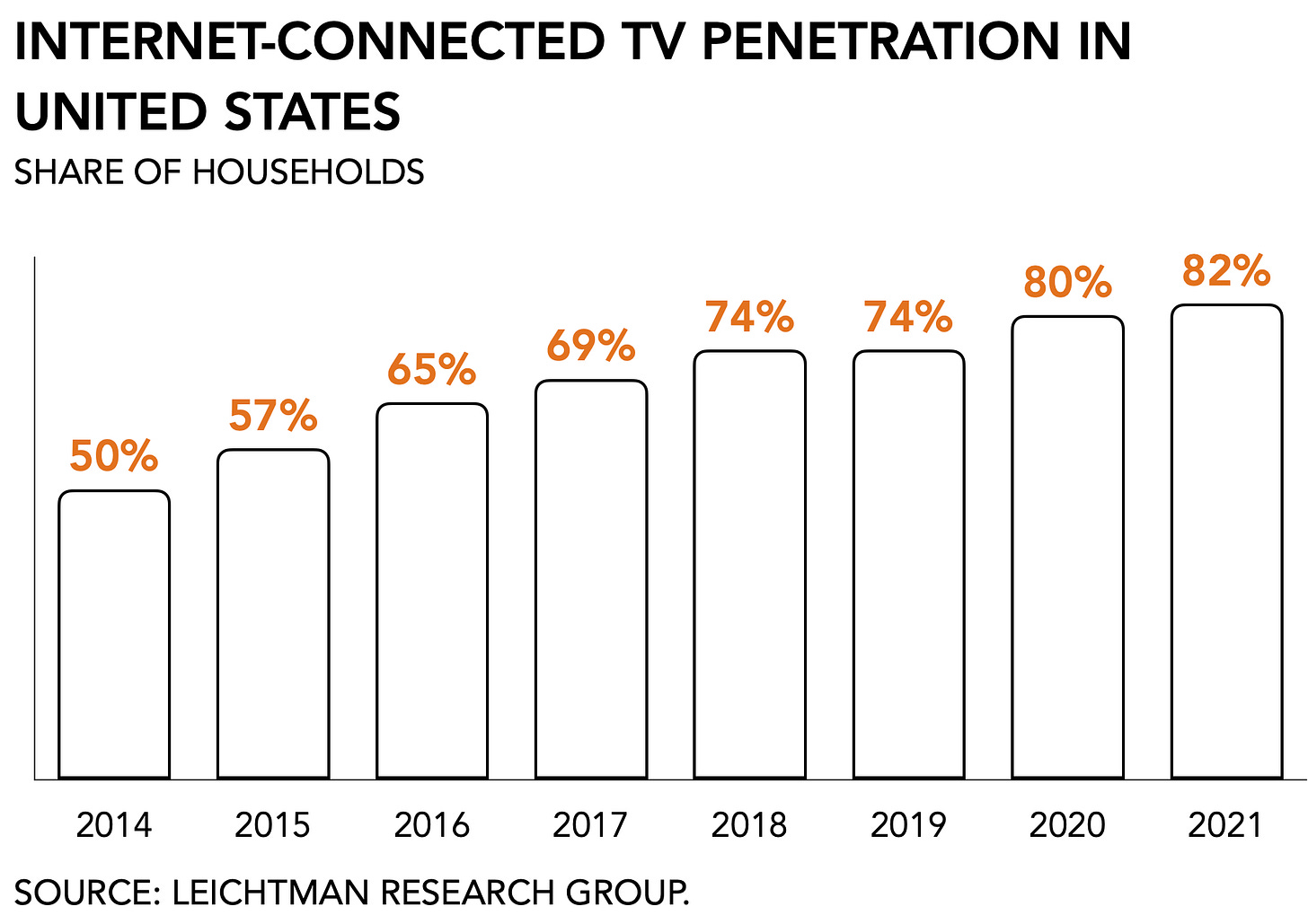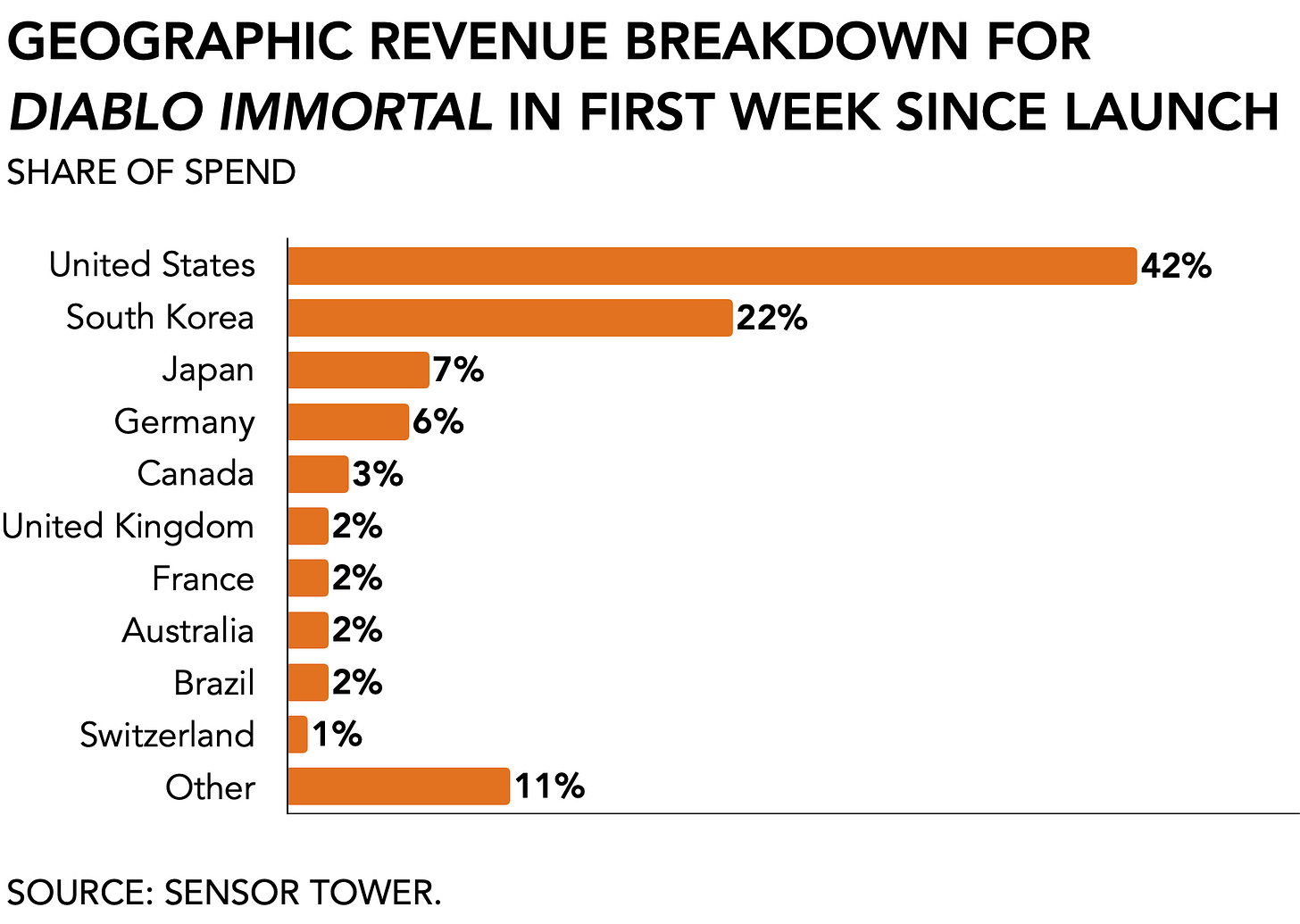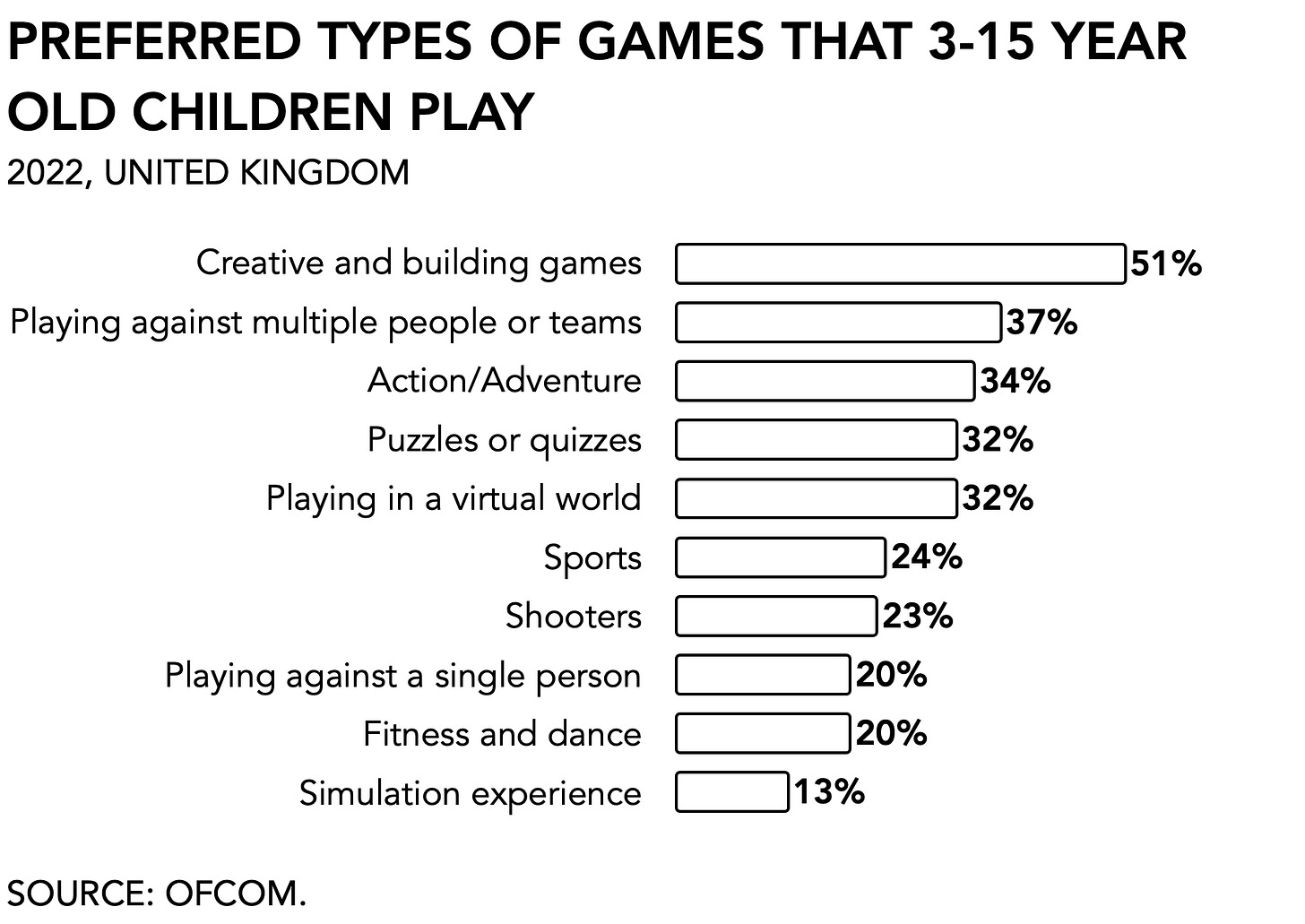Previously I questioned the ability of especially large venture funds to encourage diversity and inclusivity across the games industry, but a few people apparently misread it.
That’s okay.
I probably wasn’t talking to you. If the thought of not being regarded as diverse irritates you, it means you’re ahead of the curve and on the right path. Keep going!
Nevertheless, it’s no secret that over the past year-and-a-half, a horde of venture firms had clearly set up camp in the Activision Blizzard parking lot to write checks for anyone leaving the firm. It has sprung a bundle of studios formed by former employees, all making role-playing games: Frost Giant Studios, Lightforge Games, Dreamhaven, and Notorious Studios.
Such a degree of disintermediation among creatives is a reasonable response to an industry in the midst of a massive consolidation while struggling culturally and creatively. It is largely the same thing that happened back in the late 70s and early 80s when salaried engineers working for Atari and others got smart and left to start their own dev studios. (Bonus: Activision, but not the one you know today, was a studio erected by former-Atari engineers.)
Kotaku quickly pointed out that some of these newly-minted studios are still very homogeneous, quipping that Notorious Studios employs more dogs than women. Such a comparison isn’t the empowering declaration the writer thinks it is. But it does raise an important implication: Should the onus of a better work environment really be on tiny startups?
The frenetic funding that currently characterizes creative industries easily overwhelms brand new indies. Their corporate careers look great on LinkedIn but leave them ill-prepared for startup life. Venture firms provide capital for their ideas but also to everyone else. That makes differentiation even harder as budding studios look to establish an edge in talent recruitment, distribution, and promotion. It exacerbates talent scarcity even further.
There’s a good chance that a year or two from now many of these studios are dead and gone and that all these developers are reconciling with their former co-workers under the umbrella of whichever startup studio managed to raise the most money. Or, as my more eloquent colleague, Laine Nooney, said:
“It’s noble that a game company wants to avoid the kinds of harassment and labor exploitation that are endemic to Activision Blizzard. Only time will tell how sincere these ambitions really are.”
Meanwhile, at the top of the food chain figureheads ruthlessly push forward.
Elon Musk informed us this week that he expects Tesla personnel to return to the office, stating “If you don’t show up, we will assume you have resigned.”
UK’s prime minister, Boris Johnson, argued that working from home isn’t productive because “when he tried to do so he became distracted by making coffee and eating cheese.” So that’s how things are going since the UK went solo.
And an executive at TikTok, Joshua Ma, stepped down this week, following a probe by the Financial Times that revealed draconian working conditions and the admission that he “didn’t believe” in maternity leave. Long hours for short-form video.
It all feels a lot like I’m painstakingly separating my recycling into different bins, while major airlines fly empty planes around to keep their slots at airports. Every contribution, regardless of size, matters. But it is unfair to hold the small fries to standards while we let big industry leadership off the hook.
On to this week’s update.
NEWS
Microsoft pushes past its Xbox
The Redmond-based tech giant had a lot to say this week. We had already learned about its partnership with Samsung to integrate a game-streaming app into the South Korean television manufacturer. Those plans are scheduled to mature at the end of this month when Game Pass titles will be available to play on 2022 Samsung TV sets.
The strategic logic seems sound. Microsoft’s creed that gaming is for everyone is both necessarily universal and platform agnostic. In addition to penetrating PC, console, and mobile with its Game Pass and xCloud services, adding smart TVs is an obvious move. Among them, Samsung is the largest manufacturer of television sets in the world, with a 32 percent market share in 2020 compared to LG (17%) and Sony (9%). By integrating its Game Pass service directly into the television sets, Microsoft saves itself a lot of trouble having to, for instance, roll out a dongle. And it can market together with Samsung. One study found that 82 percent of US TV households have at least one internet-connected TV device.
More so, an integration further broadens the definition of interactive entertainment and dislodges Sony from its leadership position. Even if the Japanese firm is planning something similar (likely), any partnerships with rival manufacturers are unlikely. It was Sony that was the last holdout on allowing Fortnite crossplay, and it is only recently that the firm started to take the PC more seriously. According to its most recent investor presentation, Sony generated $35 million by publishing its titles on PC in 2020, which it expects to grow to $300 million by the end of 2022.
An aggressive move into Smart TV, however, also means moving toward an audience that is less attentive than conventional gamers. Specifically, by making Game Pass more widely available, Microsoft starts to cater to audiences that, on average, will spend less time playing and spending. In other words, it is pursuing a larger but less valuable audience.
There is one other aspect to consider, namely the observation that Microsoft generates $10 billion from ad revenue. Combined with a slew of other infrastructural acquisitions, it is well on its way to developing a platform-agnostic digital ad network. Perhaps it plans to eventually offer Game Pass for free and rely instead on ads, in the same way that Netflix is currently considering.
FTC sharpens its blade
In an interview with Axios Tuesday, Federal Trade Commission chair, Lina Khan, disclosed her decision to sue in order to block anti-competitive mergers rather than seeking to negotiate settlements.
What jumped out was this comment:
“Khan told Axios the FTC will be extra wary when it comes to transactions involving areas where there is growing adoption of emerging technologies, such as smart home technologies and virtual reality.”
Novel tech is an important source of innovation and competition. As we’ve seen in recent years, large firms have a habit of buying out ascending newcomers or outright colonizing a new category. Facebook’s rebrand to Meta and its unrelenting support of virtual reality are an example of a big firm looking to position itself as an innovative leader before a market has crystalized.
Meanwhile, investors are bracing themselves for the FTC to block the proposed acquisition of Activision Blizzard by Microsoft with a lawsuit to go live in August, followed by court hearings in December. Odds are Microsoft will be in a better position to negotiate there rather than with the FTC directly.
Diablo Immortal is here
After analysts and investors spent the last two years salivating over the imminent arrival of another mobile rendition of one of Blizzard’s biggest franchises, Diablo Immortal has finally arrived.
The launch is significant for a few reasons. First, it is hoped to be a deciding success for Activision Blizzard. Considering the publisher’s string of problems, it could use a win. ATVI’s relationship with investors and players has suffered in the past months as a result of its inaction around toxic work culture, lack of transparency to financiers, the revelation that now-former Meta COO, Sheryl Sandberg, used her position to make a negative press piece about her then-boyfriend Bobby Kotick go away, and an underwhelming second iteration of Overwatch.
Second, the more blatant use of pay-to-win monetization has drawn the ire of especially western players. One streamer spent $10,000 and still managed to get nowhere. Already are advocacy groups calling on the FTC to investigate rival EA for its loot box mechanics (I believe they called it “surprise monetization”), and Diablo Immortal is likely to be grouped with it. Already has the release been postponed in the Netherlands and Belgium because of the regulatory restrictions for loot box monetization. Nevertheless, financial analysts expect audiences in South Korea and, later, China to respond more favorably, as they believe “gamers in Asia, especially China, are more accustomed to pay-to-win features.”
The growing demands made on mobile hardware are the third aspect. The new release comes in at 3.3 gigabytes, or roughly similar to Call of Duty Mobile. To be compatible and cross-platform enabled (iOS, Android, and PC), Diablo Immortal is another title asking for more from mobile players and their devices. The miniaturization of triple-A content pushes everyone constantly toward greater processing power, bandwidth, and storage—and therefore costs.
Finally, the geographic market breakdown means making concessions. What works in Asia does not necessarily work elsewhere.
Since its release on June 2, Diablo Immortal has been grossing an average of $1.8 million per day, with the US, South Korea, Japan, and Germany as its largest markets, according to Sensor Tower. In their insatiable appetite for more players, publishers will ultimately run into a cultural ceiling. On mobile more so than on any other platform.
It is far too soon to make any meaningful predictions on how the new release will impact its publisher’s long-term prospects. But I doubt that even mighty Activision Blizzard will prove immortal.
Young gamers in the UK prefer building and creative games
Ofcom, the media and communications watchdog in the United Kingdom, released the 2022 edition of its annual report on online consumer behavior. It’s a worthwhile read, considering the level of detail and sincerity with which it is written.
Among its conclusions, one was the finding that 58% of UK gamers aged 13 to 64 years old subscribe to a gaming subscription service. It tells you that saturation in this relatively new category is right around the corner. And considering how critical the UK is to, especially, the global game companies, competition will be increasingly fierce.
A second finding was the wholesome preferences among younger players. According to its data, clear favorites were Roblox and Minecraft, especially among 3 to 15-year-olds. You’ll also notice that Shooters are more than halfway down the list, lower even than Sports.
Finally, it’s encouraging to see that the UK’s government has such high standards and the general interests to support such a research effort. The United States has to contend with the celebratory findings of a lobby group whose biggest money-maker (its annual industry event E3) is hanging by a thread. Maybe Keighley can hire a few analysts to take that over, too?
PLAY/PASS
Pass. As is customary in June, a string of game announcements is scheduled. But no one’s really holding their breath, as even EA and Ubisoft can’t be bothered. Best to go to the beach instead.
Play. The retro puppet show Thunderbirds is getting its own NFTs. You don’t them it, but you want it. Now do Team: America! (h/t Jon Jordan)








